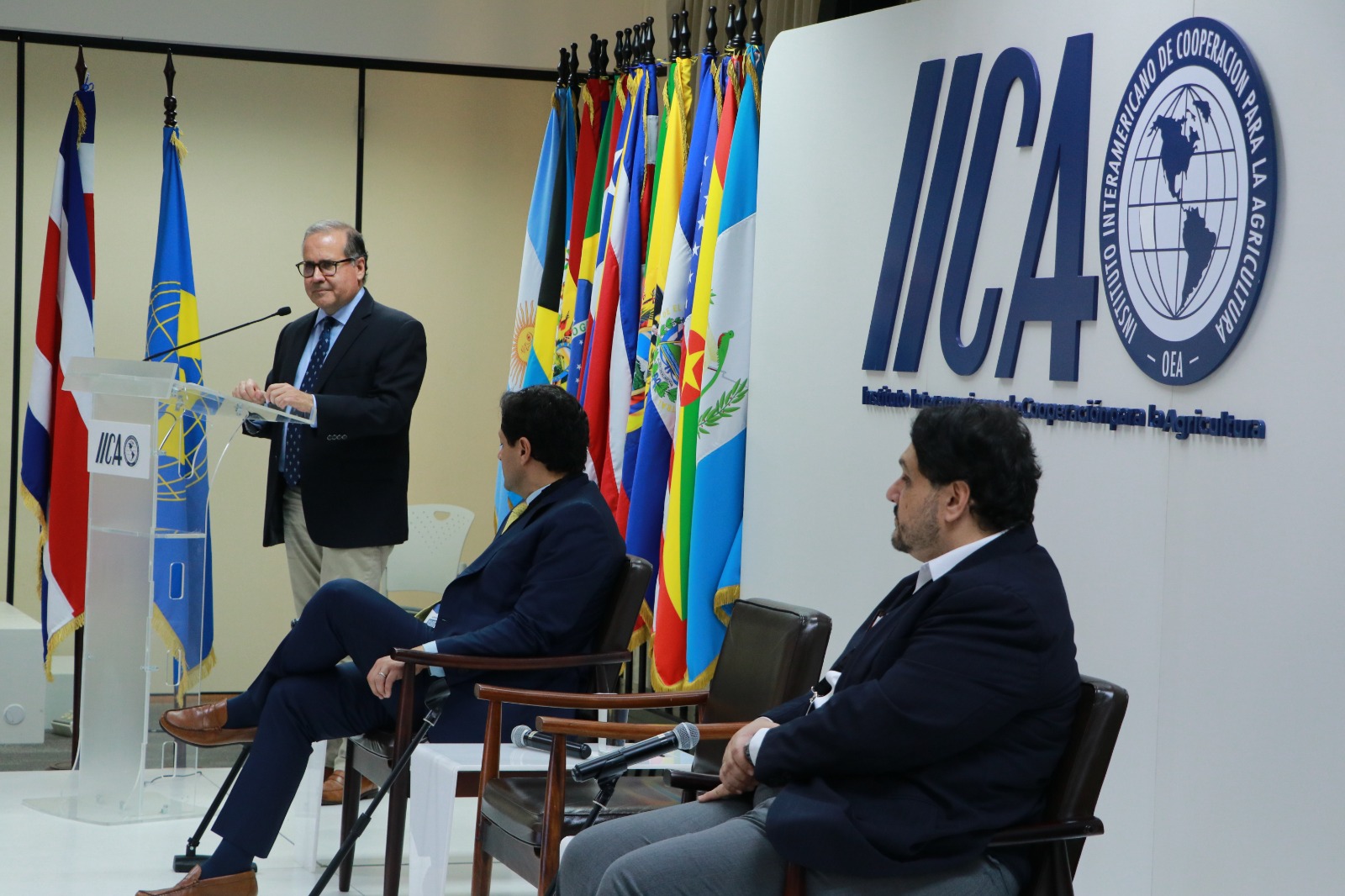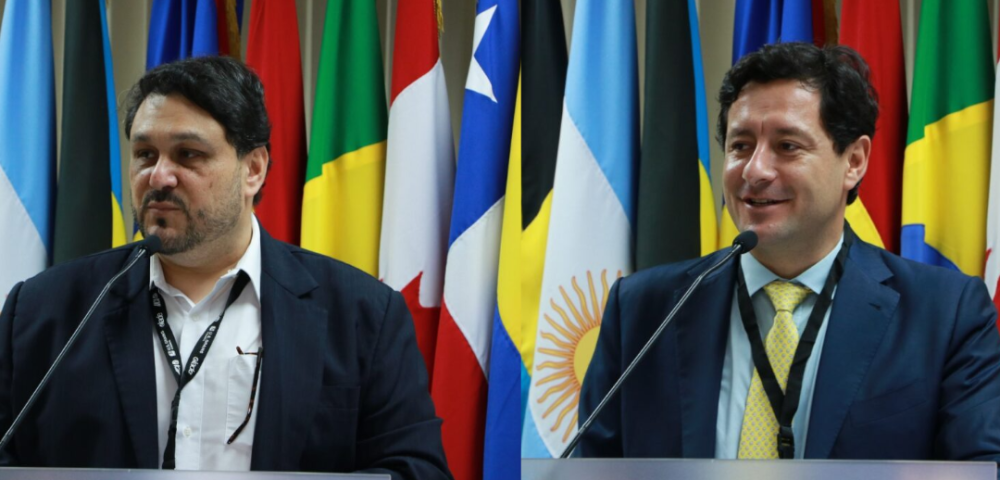“Liquid biofuels in the energy and climate transition: policymaking and new technologies” is one of the virtual training courses offered by the IICA Innovation and Bioeconomy Program. It was developed with support from the U.S. Grains Council (USGC) and the Latin American Energy Organization (OLADE).

San José, May 20, 2024 (IICA). Given the important role of biofuels in climate transition and public policymaking, a workshop on liquid biofuels was held at the Headquarters of the Inter-American Institute for Cooperation on Agriculture (IICA) that marked the conclusion of a round of training targeted at actors in the biofuels value chain, government specialists and decisionmakers from Latin America and the Caribbean.
“Liquid biofuels in the energy and climate transition: policymaking and new technologies” is one of the virtual training courses offered by the IICA Innovation and Bioeconomy Program. It was developed with support from the U.S. Grains Council (USGC) and the Latin American Energy Organization (OLADE).
“IICA is heavily involved in the issue of biofuels, building capacities and generating public goods, as well as advising the Member States directly. There are three basic reasons for this: the environmental advantages that biofuels offer to mitigate climate change, the opportunities that the development of this kind of energy creates in the agriculture sector, and the importance of energy diversification, a key element in a continent that is a net importer of oil and its byproducts,” emphasized Lloyd Day, Deputy Director General of IICA.
The advantages of biofuels include the fact that they produce fewer greenhouse gas emissions than fossil fuels. They also promote energy security and rural development¾by creating local economic opportunities¾, thus contributing to the conservation of natural ecosystems and the planet’s sustainability.
“We’ve worked together to make this course possible, which is a great opportunity for government specialists and decisionmakers from Latin America and the Caribbean to deepen their knowledge and learn about current trends and the role of biofuels in the energy transition in the region, and their impact on climate change mitigation. I’m sure this will make an enormous contribution,” said Andrés Rebolledo, Executive Secretary of OLADE.
More than 200 participants completed the course, drawn from 13 countries in the region: Mexico, Guatemala, Belize, Honduras, El Salvador, Costa Rica, Panama, Dominican Republic, Colombia, Ecuador, Peru, Chile and Venezuela.
“This event was held thanks to the institutional framework, credibility and prestige of both IICA and OLADE, affording more than 400 people the opportunity to learn a little about liquid biofuels and their role in agroindustrial development and in the transportation sector’s decarbonization process. We hope these kinds of activities will be replicated and that biofuels are taken into account in developing public policies for energy transitions in each of the countries taking part in this event,” said Juan Diaz, Regional Ethanol Consultant to the U.S. Grains Council.
During the course, the topics addressed included principles for introducing the question of biofuels and fossil fuels, the relationship between biofuels and global decarbonization, the technological and sustainability paradigm of sustainable aviation biofuels, the institutional framework, and the state of liquid biofuels globally and in the Americas.

“This workshop sets out to complement experiences from other countries, such as Bolivia, Argentina and Colombia, to strengthen knowledge about the state and future of biofuels and some very specific questions, such as the infrastructure that is needed for their development in different countries and the impact it has on the value chain, on agroindustry, and on rural production,” explained IICA Biofuels Specialist Agustin Torroba.
Pablo Bermúdez, Environmental Advisor to Costa Rica’s Ministry of Environment and Energy, underscored the importance of the workshop: “it was very helpful for those of us from the Ministry of Environment and Energy, precisely because we’re sharing information, we’re generating knowledge that will help us make more efficient use of energy, one of the current goals of the Deputy Ministry for Energy.”
The workshop held in Costa Rica trained 47 experts from this Central American country, Panama and the Dominican Republic, as part of the training actions that concluded recently in Lima, Peru, with a total of 200 experts trained on the subject. Further in-person events took place in Guatemala and at Mexico’s Foreign Ministry.
More information:
Institutional Communication Division.
comunicacion.institucional@iica.int











